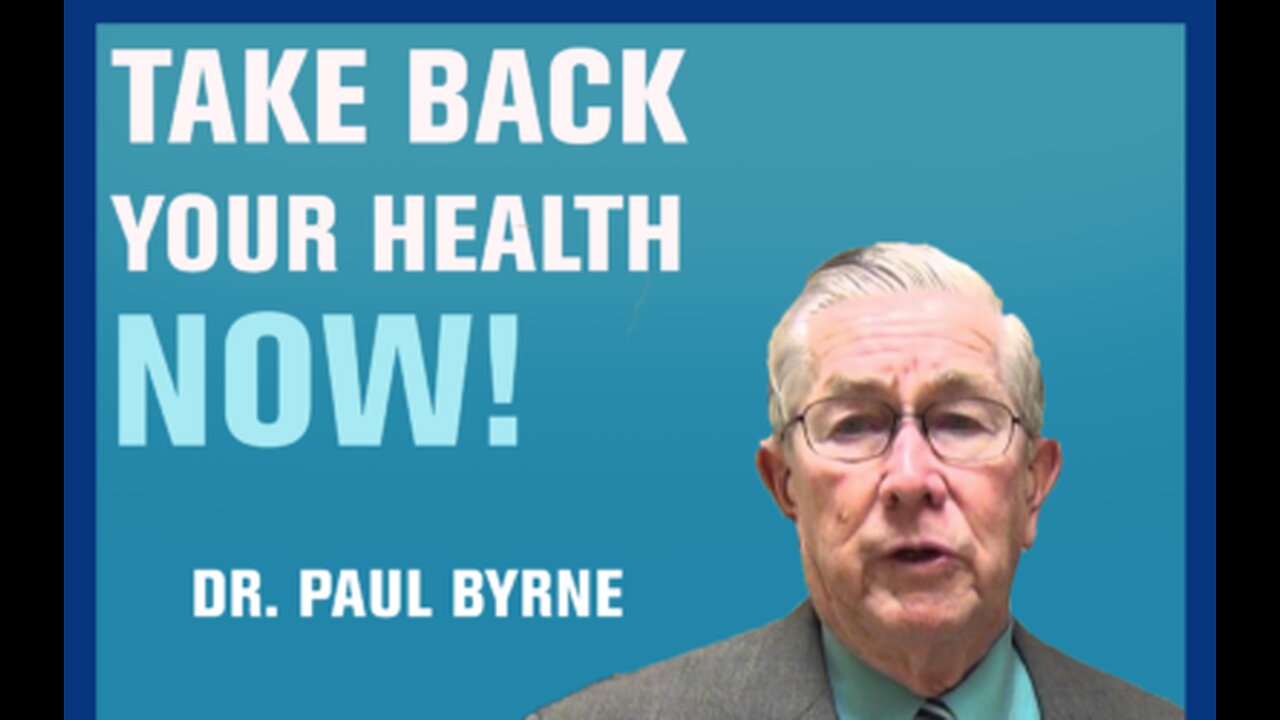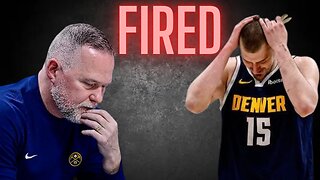Premium Only Content

Dr. Paul A. Bryne: Brain Dead Is A Lie.
Every donor is killed in the process, he stated. Revoking your organ donation status from your drivers license is not enough, you must also complete a document of refusal.
Dr. Paul A. Byrne is a Board Certified Neonatologist and Pediatrician. He is the Founder of the Neonatal Intensive Care Unit at SSM Cardinal Glennon Children’s Medical Center in St. Louis, MO. He is Clinical Professor of Pediatrics at University of Toledo, College of Medicine. He is a member of the American Academy of Pediatrics and Fellowship of Catholic Scholars.
Dr. Byrne is past-President of the Catholic Medical Association (USA), formerly Clinical Professor of Pediatrics at St. Louis University in St. Louis, MO and Creighton University in Omaha, NE. He is author and producer of the film “Continuum of Life” and author of the books “Life, Life Support and Death,” “Beyond Brain Death,” and “Is ‘Brain Death’ True Death?”
Dr. Byrne has presented testimony on “life issues” to nine state legislatures beginning in 1967. He opposed Dr. Kevorkian on the television program “Cross-Fire.” He has been interviewed on Good Morning America, public television in Japan and participated in the British Broadcasting Corporation Documentary “Are the Donors Really Dead?”
Although the medical profession declares patients “brain dead,” often following an accident, Dr. Byrne insisted there’s no such thing. "Brain death" was false, he said. “Brain death was a lie from the beginning. It has always been a lie. "Brain death" is not true death,” he continued. Organ transplant is the reason you have to have brain death.
Dr. Byrne said this term crept into the medical profession following the world’s first heart transplant in 1968. It has since been defined and redefined and is now being replaced by another term known as cardiac death, he noted.
He said donated organs, without exception, must come from a living person. Within minutes of “true death,” which, he explained, is the cessation of circulation and respiration, the organs will begin to die. This is why, when organs are removed from a donor, the beating heart is always taken last. You cannot get any organs from cadavers, he noted.
If you’re really dead, then no organs can be extracted. He also pointed out the differences between living and dead patients. One example is cooling the body. This slows metabolism in someone who is alive. It slows destruction in a corpse. He said a ventilator, which pushes air into the body, can only be used on someone who’s living, as the person exhales the air. Also, if you cut the skin of someone who’s living, but declared “brain dead,” the wound will heal, something that won’t happen in a dead person.
Clearly there’s a difference, said Dr. Byrne.
Dr. Bryne went on to describe the damage that can result when doctors perform an “apnea test,” which often sets the stage for organ donation. This is when a ventilator is removed, prematurely, for 10 minutes, to see if a person can breathe on their own. This process, which he called “suffocation,” typically results in the person’s conditioning worsening, he said.
Recovery after being declared “brain dead” is also possible according to Dr. Byrne's personal experience and research.
-
 1:54:27
1:54:27
Glenn Greenwald
10 hours agoAs Tariffs Dominate News, Trump and Netanyahu Make Increasingly Militaristic Threats; Plus: Mixed Supreme Court Ruling on Deportation Powers | SYSTEM UPDATE #435
152K130 -
 1:01:27
1:01:27
Man in America
10 hours agoMAHA Feels Betrayed by RFK Jr.—What's REALLY Happening? w/ Sayer Ji
62.3K47 -
 1:15:15
1:15:15
Savanah Hernandez
7 hours agoToxic Empathy Is Ruining America
51.3K43 -
 1:39
1:39
Stephen Gardner
11 hours ago🚨BREAKING: Karoline Leavitt MAKES STUNNING announcement about Trump's Assassin!
53.2K21 -
 1:32:10
1:32:10
Joker Effect
6 hours agoRumble is about to get a new genre!! Are you ready to take it on? Time to fight fire with fire!
54.1K6 -
 3:27:44
3:27:44
SilverFox
6 hours ago🔴LIVE - ELDEN RING - ZERO DEATH CHALLENGE - ATTEMPT 5
41.5K -
 17:17
17:17
SantaSurfing
9 hours ago4/8/2025 - Modern Day Wealth Managers! The Rewards of planning and dreaming big!
47.4K17 -
 26:40
26:40
Producer Michael
13 hours agoI WAS ROBBED IN MY NEW HOUSE!
47.6K2 -
 13:00
13:00
SKAP ATTACK
8 hours ago $2.10 earnedMichael Malone FIRED by Nuggets
39.8K1 -
 1:11:45
1:11:45
NucleoNick
1 day ago $1.10 earned🟢LIVE NOW! The Legend of Zelda: Skyward Sword - Part 8🟢
24.6K